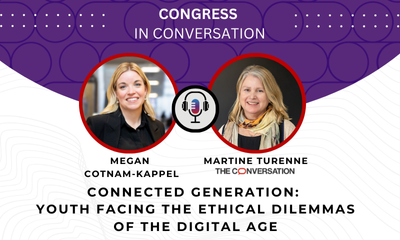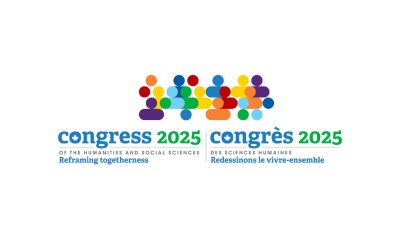There is an age when we acquire an understanding of metaphor. I recall hearing, “Avec des si on peut mettre Paris en bouteille. » We know that means something like “anything is possible if you dream”. But I imagined the homonym (scies, which translates to saws), “Avec des scies on peut mettre Paris en bouteille.” The next time we visited my grandparents, I spent some time studying their sailing ship-in-a-bottle for signs of sawing and possible fusing of the glass because it just did not seem possible that the ship, with its tall masts, sails and rigging, could have passed through the bottle’s narrow neck.
When the Canada Foundation for Innovation (CFI) was founded, I recall thinking, how wonderful! This is a necessary and wise investment. Canada was losing researchers to other countries, and providing them with state-of-the-art facilities would go a long way to helping reverse the trend. It certainly did. And today, with the global race for talent, we need this investment more than ever.
I also recall thinking that the CFI would mainly be for science, medicine, and engineering. However, the CFI literally proved me wrong by funding projects in all disciplines, right from the beginning. The research facilities in the magnificent Museum of Anthropology in Vancouver, then under construction, offer but one of the many examples of CFI’s innovative investments in research in every field.
Symbolically, the CFI has been led by a medical researcher, an engineer, a geophysicist and today, by a humanist. This speaks of the fact that the organization is prepared to support excellence in every discipline as well as interdisciplinary work. Our strategic road map speaks of the convergence of disciplines where researchers will come together to find solutions to large problems. Our request for teams to come together in our Innovation Fund competition and our suggestion that projects have not one leader, but co-leads indicate our desire to encourage interdisciplinarity and the inclusion of researchers of all ages and stages in their careers.
The reality is impressive. The list of some recent awards have shown the intersection between the arts and innovative technology, such as in sensors embedded in clothing, digital art, or the perfect guitar. Other projects have shaped new environments to support Indigenous research, studies on the pursuit of happiness, and the dangers of boredom, and others still have examined accessibility, elder care, art and the environment, consumer behaviors, virtual reality and anxiety, and gender identity. The digital archives of residential schools at the University of Manitoba are of special importance not only to researchers but to every citizen of this country.
I ask you all to join me in celebrating the contributions of researchers in all fields, including the humanities and social sciences, in transforming research for the benefits of Canadians and the world. It is always true that more can, and will, be done with your help. Please let your colleagues know they are literally and metaphorically welcome aboard the CFI ship where innovation has absolutely no disciplinary limits.
Please mark your calendar to join us on May 16 for the CFI’s panel session, Demanding social justice for a more empathetic world - The role of humanities and social sciences research in advancing social justice for a better future at Congress 2022.

Connected generation: Youth facing the ethical dilemmas of the digital age
← Big Thinking Podcast homepage Next episode → Introduction | About the guest | Megan Cotnam-Kappel's Research at Congress | Transcript | Follow us Introduction Welcome to Congress in Conversation, a special series presented by the Big Thinking...

Pride and profit: The politics of corporate allyship
← Big Thinking Podcast homepage Next episode → Introduction | About the guest | Daniel Conway's Research at Congress | Transcript | Follow us Introduction Welcome to Congress in Conversation, a special series presented by the Big Thinking Podcast...


